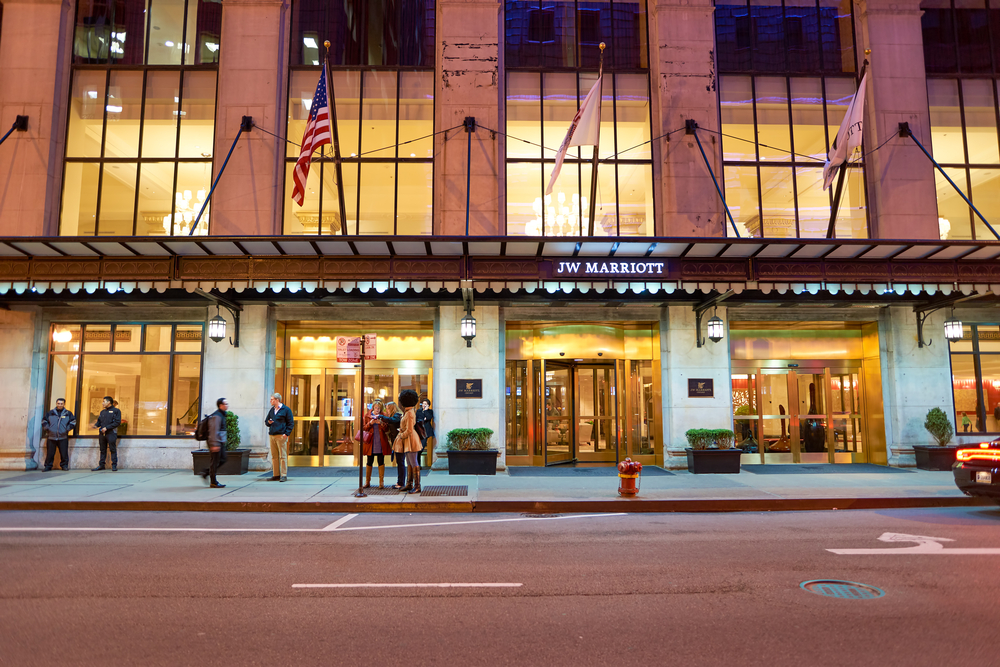
THE completion of Marriott International’s US$13 billion acquisition of Starwood Hotels & Resorts Worldwide last Friday is greeted by corporate travel managers with more enthusiasm than apprehension.
Corporate end-users interviewed said they now gain access to Marriott/Starwood’s massive inventory by dealing with just one supplier, even if the company’s greater scope and size may give the chain the upperhand in rate negotiations.
The consolidation results in the world’s largest hotel company with 5,700 properties and 1.1 million rooms across 110 countries.
Said Nandan Bhatia, head-administration & facilities at Indian food conglomerate Britannia: “Direct tie-ups with hotels are always preferred as they give us special corporate packages. Now with Starwood properties combined with Marriott, this gives us much more options.”
Britannia spends an estimated Rs300-500 million (US$4.5-7.5 million) a year sending between 400 and 500 employees on business and MICE trips.
Bhatia said he saves “at least 10 per cent” by dealing directly with hotels, a sum made even more significant as travel budgets get tighter.
Admin manager Philomena Seet, who manages travel for Singapore-based Kseven Industries’ top executives, told TTG Asia that Starwood properties are frequently used and the merger will boost her portfolio selection as her company is now automatically a client of Marriott.
Seet is unfazed by Marriott/Starwood merger’s expected additional negotiating power as the value provided by a hotel is her topmost consideration.
“Four-star hotels are just about right (for business travellers). The best are those that provide the value of a five-star property at four-star prices – that will make me a repeat customer,” she said.
Seet also liaises with hotels directly to negotiate the best corporate rates, resulting in about five to 10 per cent savings for the company.
Claire Kang, purchasing & travel manager at International Vaccine Institute, said dealing directly with hotels has been the modus operandi for the Seoul-based, UN-backed nonprofit. The corporate negotiated rates she gets gives her savings of up to 25-30 per cent.
When asked if she is anxious about Marriott’s greater bargaining power over rates, she said: “They have always tried to negotiate with us over rates even before the merger. We establish annual agreements with them so I am not so worried now. When the time is up, we will request for bids as usual and see how it goes.”
For Kang, who sends her staff all over the world, including third-world cities, traveller safety and dependability of the hotel are primary concerns.
Furthermore, she is accountable to donor governments and charity organisations such as the Bill & Melinda Gates Foundation. Hotels that are too expensive will price themselves out of the budget, she added.
Some corporate segments however, have different considerations. While corporate negotiated rates do offer savings for Lisa Knevitt, travel and events manager-Asia/Pacific at Cook Medical, the location and standard of hotel properties are bigger priorities, especially as budgets remain strong in the medical profession.
As well, given her company’s longstanding relationship with Starwood, Knevitt is excited about the extra value in the form of redeemable points and roomnights that are now usable across Marwood’s 30 brands.
While loyalty programmes help Britannia’s Bhatia in the selection of hotels for repeat visits, he opined that no single hotel company can meet all his company’s travel needs.
For that reason, he still works with TMCs like Thomas Cook to get a better gauge of prices and perform due diligence with multiple RFPs, and attends tradeshows like IT&CMA to meet other hoteliers.




















